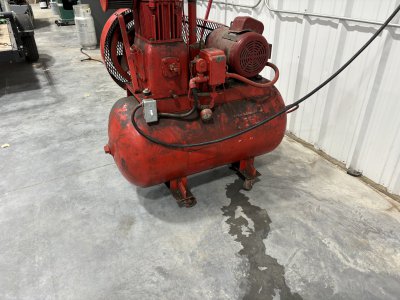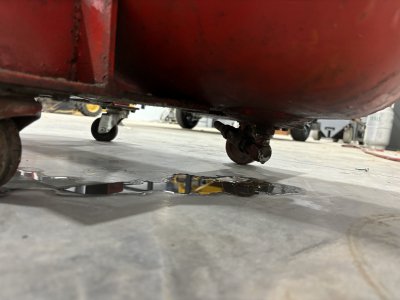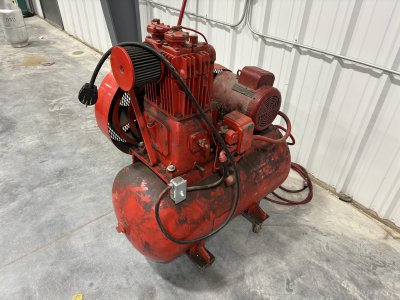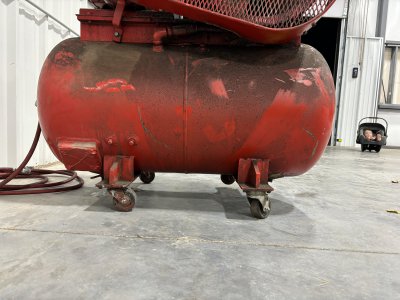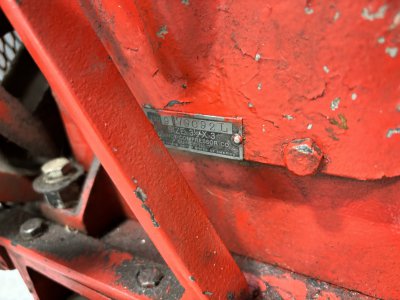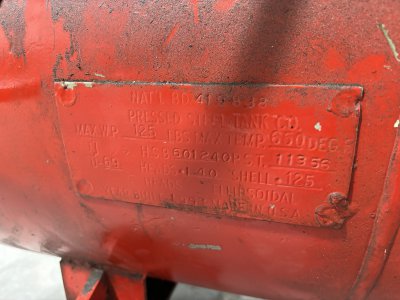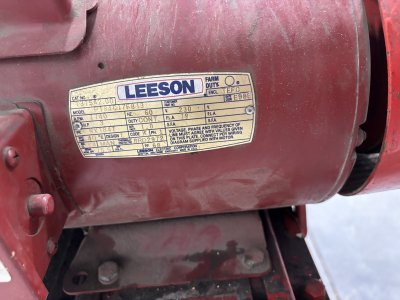Propane tanks are a reasonable source for moderate pressure air systems.
I needed a large ballast tank supply of air to be supplied to an anti-vibration table.... It was at a distance from my compressor. The compressor motor etc makes a lot of noise and the experiment was very sensitive to vibration so I did not want the compressor near by. So there was a long hose from the compressor to the table. So I purchased several used propane tanks for a few dollars each and hooked them up in parallel. I got them from a local place that fills tanks, but you can also buy them new and unfilled for more $. The pressure I used was always < 90 PSI so there no real concern about blow out. Since, they have never had air in them there is no condensation in them and so little concern about internal rusting. The propane seems to permeate the inside of the tank and so as the air comes out it smells a little. This eventually goes away.
I also sometimes use them with a small portable pancake compressor when there is a need for a high pressure burst of air, but do not need it for a long time. Of course the pancake compressor takes a while to fill them back up.
There was one experiment where we were testing sensors for various gases at various concentrations. We needed a low pressure "clean air" supply to mix with the test gases......, so no oils etc. Since we did not need a lot of flow, but needed it for an extended period of time we purchases a new propane bottle and a hand bicycle tire pump to fill it with!

